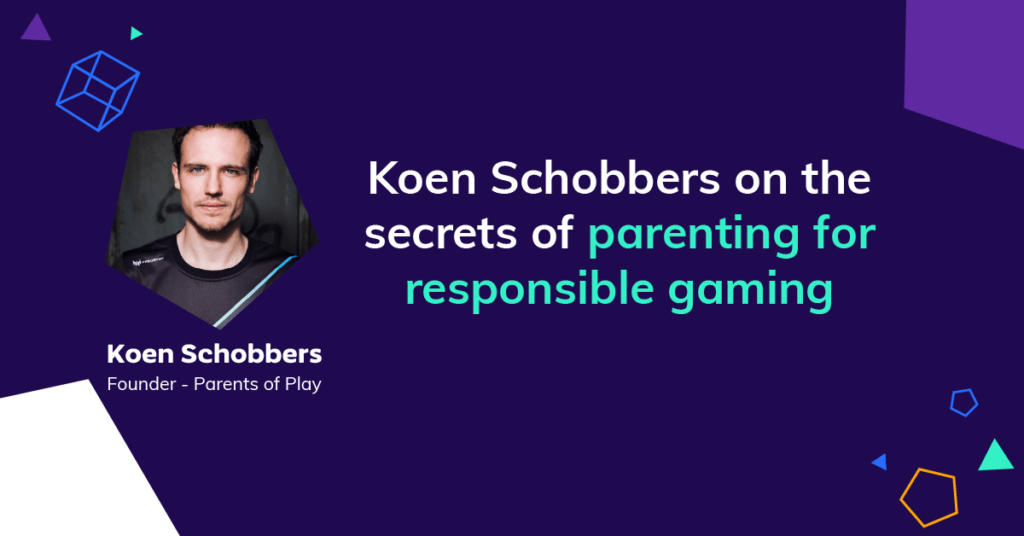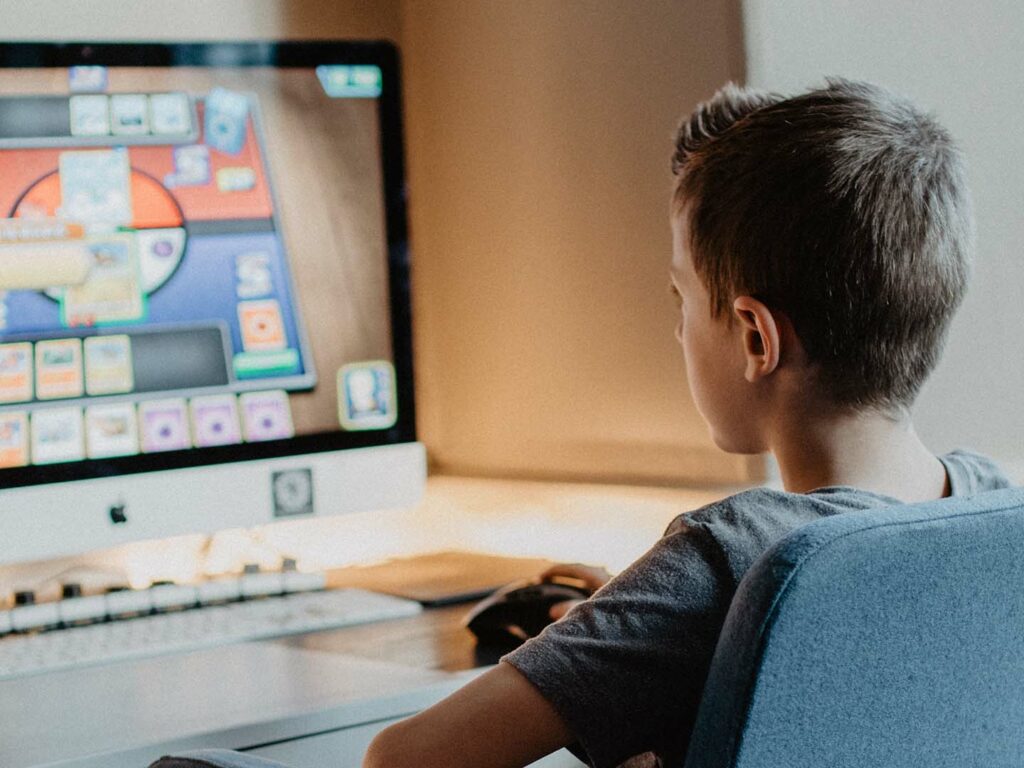Gaming is the world’s #1 lifestyle choice, played by more people than any other form of entertainment. We’ve had a ringside seat for its evolution, working hand-in-hand with our clients to support their customers as they enter huge, new immersive worlds.
That includes working with experts in the field like Koen Schobbers, who helps to teach and promote responsible gaming via his company Parents of Play. He’s shared some practical advice with us on how to make sure parents and their children can communicate and get the balance right.

Imagine you’re a parent of a child who really comes alive when he or she games, but perhaps you struggle to understand their passion or connect with them over it. How can you develop a bond with your child through gaming and help them open up?
Let’s start with you (and your mindset
By the time most of us have children old enough to be gaming, we are approaching middle age. It might have been a couple of decades since we were carefree children who loved to play all day – and let’s face it, plenty has changed since then!
One of the most important tips Koen gives parents is related to mindset. One of the key things his business – Parents of Play – works on with parents is to help them be open to innovation, technology and digitalization. Koen’s business can be summed in a single quote from George Bernard Shaw:
“We don’t stop playing because we grow old; we grow old because we stop playing.”
Put simply, play is discovery. When we lose the ability to play, we lose some of our ability to move with the times. It’s important to invest a little more into these years when your children still live in the same house as you – after all, they’re the years that will determine how the rest of your lives together will be spent.
Let’s start by opening up communication
You need to build up the communication with your child, particularly if gaming has been problematic for you. It can be tough trying to open up communication from a standing start.
The first question you want to ask your child is the ‘What?’ question. “What game are you playing?”, or “What character are you playing?”
For a child, replying to this kind of question can be an easy, one-word response in return. And just like that, it’s begun. You’re already beginning to take down some of the barriers that might have sprung up between you.
You then have permission to ask the second question – the ‘how’ question. “How does it work?” “How does the ship fly?” “How do you move the character?”
Your child can then talk about something they know really well, and are passionate about. The third question is the last question here, even though far too many parents start with it. It’s the ‘why’ question, like: “Why do you play Fortnite all the time?”
It’s the last one you ask because it’s the most personal. It’s asking your child to think about their motivations.
Do the work
With those first three questions, you’re not giving, you’re only taking. In this next stage you have to do a little digging into the games your child is into to pick up some knowledge. It’s not difficult to find this stuff out. You don’t need to become an expert – Google is your friend, and YouTube’s a great place to pick up tips about the games.
So learn something about the game. Maybe there’s a new update, or a new character, or perhaps there’s a big gamer tournament coming up. Then, toss out the odd knowledge-laden question during dinner. Surprise them by knowing something about the thing they love.
Keep an eye on the 5 ‘S’s
Koen calls them the ‘5 S’s: Sleep, Study, Sports, Social life, Screens. It’s a framework you can use to check that your children are getting the balance right. Hopefully they’re all pretty self-explanatory, and put together they should make for a pretty well-balanced child.
As long as the ‘S’ of Screens doesn’t grow to have a negative impact on the other 4 ‘S’s, then you have no problem. And if the other four ‘S’ factors are all healthy, then your child won’t be trying to play games for hours and hours, because those other factors will be keeping them busy anyway!
Times are changing
Ultimately, parents need to accept that times change – gaming is another form of play, and so why not celebrate it like you would their reading or their sports? From there you can start the journey with your child. Without that mindset switch upfront though, you’ll struggle to start.







